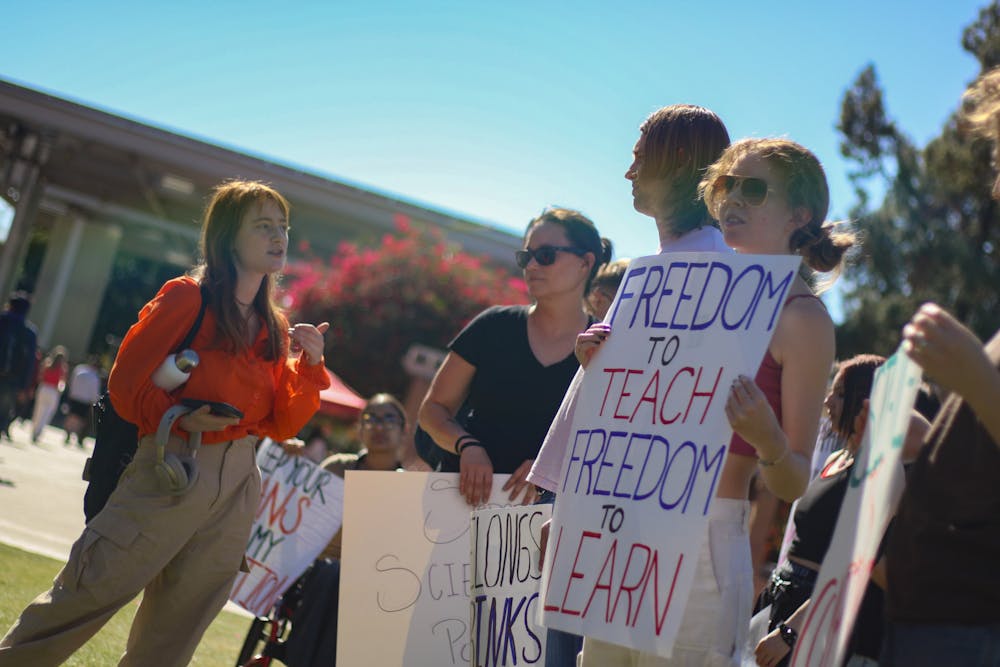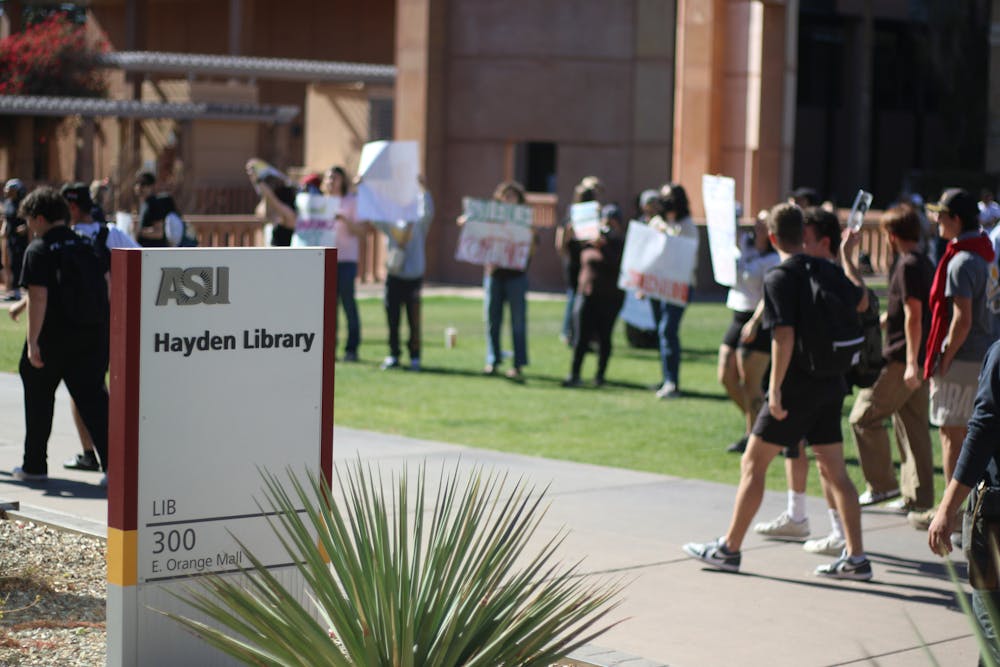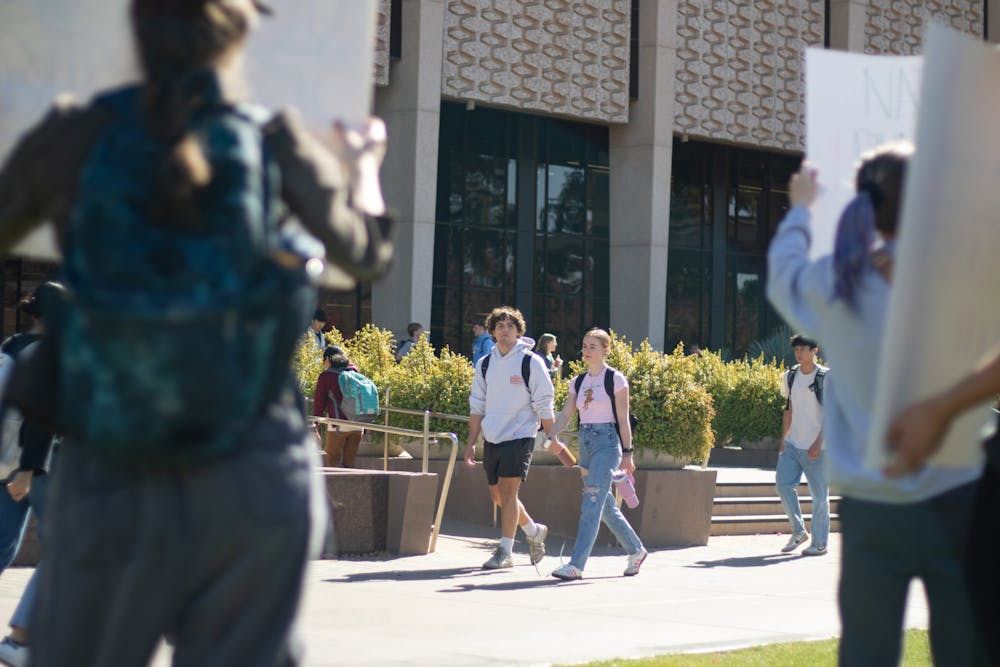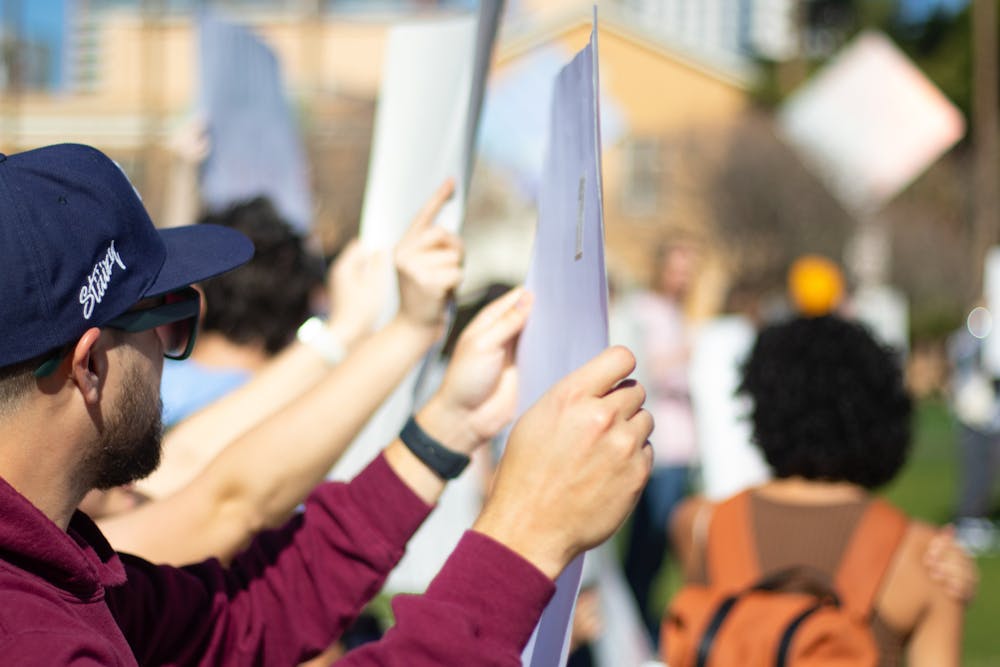STEM students met on the Tempe campus Wednesday to protest against President Trump's recent policies regarding diversity, equity and inclusion as well as restrictions on federal funding.
Trump's recent attempt to freeze federal funding and his restrictions on DEI programs have had repercussions on both scientific research and its financing. Medical data has been removed from the Centers for Disease Control and Prevention website, while organizations such as the National Institutes of Health and the Environmental Protection Agency are at risk of losing financial support.
Though the funding freeze has been rescinded, approximately 30 students took to Hayden Lawn to express worries that their future research, careers and education could be in jeopardy. Attendees included members of the BEAR Lab and the Shroom Society at ASU. For many of them, it was their first time protesting.
Chloe Holmgren, a senior studying psychology and neuroscience, said she had never protested before and decided to attend to show support for the graduate students, professors and members of the science community at the University.
Holmgren is a member of the BEAR Lab and is also working on research papers with other groups on campus. She said the BEAR Lab might not be as affected by Trump's administration since Robert F. Kennedy Jr. supports psychedelic research.
However, some of her other projects outside of the lab study the LGBTQ+ community, and with Trump's recent DEI regulations, Holmgren worries that this research may not ever be published.
In addition to the funding freeze, Holmgren said she was protesting against grant censorship, misinformation and privatization in research.
"It's important to keep science funded publicly, because if it's funded privately, we have private interests getting in, and then it's no longer science anymore," Holmgren said.
Jackson Parrish, a senior studying microbiology who organized this event, said scientific research was impossible without government funding and would be very difficult without DEI.
"There are lots of people that get funding for research and funding for their further tuition through DEI-related programs, and because of that, they're not going to be able to stay at ASU," Parrish said. "One of my friends is actually considering leaving ASU, and they're a really good student and very interested in science."
While the University has not announced any reductions in financial aid due to Trump's DEI policy, it has issued stop-work guidance on DEI research and continues to update a web page informing community members about evolving guidance around research involving DEI.
Parrish is researching gene expression in aged mice treated with psilocybin. He is investigating links between psilocybin, gut microbiome alterations and neural changes in the prefrontal cortex and hippocampus. Despite his passion for research, he is reconsidering his future in academia due to instability in federal research funding.
"Threats to cut between 25 and 50% of employees at NSF (the National Science Foundation) because Trump doesn't agree with the research … undermines research at ASU specifically because we're number one in innovation," Parrish said.
Blythe Kelly, a senior studying sustainability, said Trump's environmental policies could put her major and career at risk, in addition to the environment itself.
Kelly said she joined the protest to emphasize the importance of equal access to education and to offer support to her fellow students.
"Realistically, we are going to be the next generation that's going to be running our country," Kelly said. "One thing that is often not recognized is the power of collective action. So no individual can make a big difference in the world, but when we all stand together, we can make a wave."
Edited by Sophia Ramirez, Sophia Braccio and Katrina Michalak.
Reach the reporters at azindan1@asu.edu and pkfung@asu.edu and follow @FungPippa on X.
Like The State Press on Facebook and follow @statepress on X.
Pippa is a sophomore studying journalism and mass communication with minors in political science and German. This is her third semester with The State Press. She has also worked at Blaze Radio and the Los Alamos National Lab.







